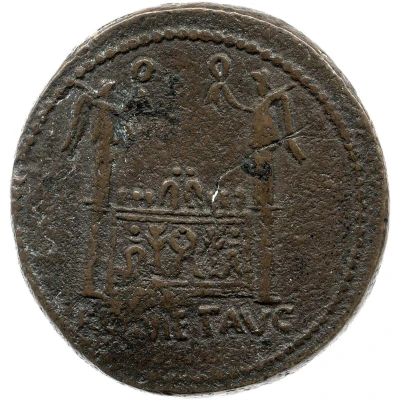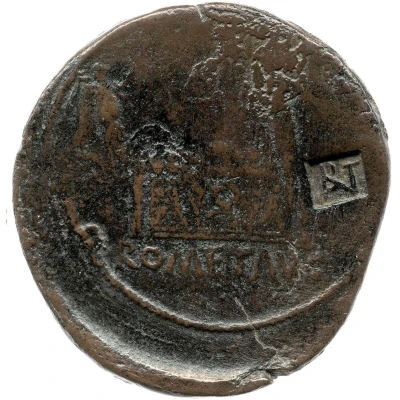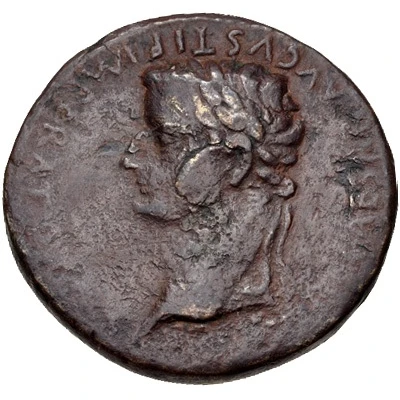


© Trustees of the British Museum
Sestertius - Tiberius ROM ET AVG; altar of Gauls
| Bronze | 20.7 g | 32.5 mm |
| Issuer | Rome › Roman Empire (27 BC - 395 AD) |
|---|---|
| Emperor | Augustus (Caius Octavius) (27 BC - 14 AD) |
| Type | Standard circulation coin |
| Years | 12-14 |
| Value | 1 Sestertius = ¼ Denarius |
| Currency | Denarius, Reform of Augustus (27 BC – AD 215) |
| Composition | Bronze |
| Weight | 20.7 g |
| Diameter | 32.5 mm |
| Shape | Round (irregular) |
| Technique | Hammered |
| Orientation | Variable alignment ↺ |
| Demonetized | Yes |
| Updated | 2024-10-06 |
| Numista | N#247714 |
|---|---|
| Rarity index | 100% |
Reverse
Altar of the three Gauls in Lugdunum, flanked by Victory holding wreath on column on each side, front decorated with corona civica flanked by nude male on each side.
Script: Latin
Lettering: ROM ET AVG
Translation:
Romae et Augusto.
To Rome and the emperor (Augustus).
Interesting fact
One interesting fact about this coin is that it features an image of the altar of the Gauls, which was a monument built by the Roman Emperor Augustus to commemorate his victory over the Gauls in 52 BC. The altar was located in the Campus Martius, a large public square in Rome, and was decorated with images of the conquered Gauls and their weapons. The inclusion of this image on the coin minted during the reign of Tiberius (14-37 AD) suggests that the Roman Empire was still celebrating its military victories and wanted to emphasize its power and dominance over other nations.



